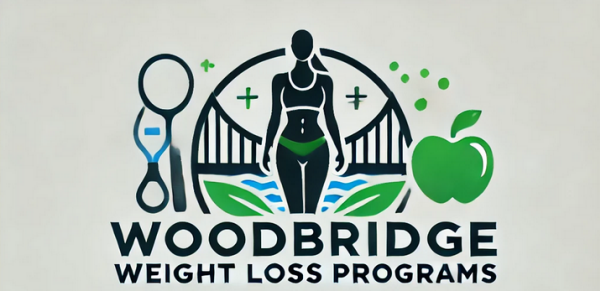
You’ve probably heard a lot about low carb diets and their promise for effective weight loss, but what’s the real truth behind these popular plans? In “The Truth About Low Carb Diet For Weight Loss,” you’ll explore the ins and outs of this dietary approach. You’ll gain insights into how reducing carbohydrates can impact your body, ways to navigate potential challenges, and discover whether this plan might be the right fit for your weight loss journey. Whether you’re just starting out or looking to refine your eating habits, this article will give you the knowledge and confidence to make informed decisions. Have you ever wondered if a low-carb diet could be the magic bullet you need to lose weight? It’s a question many of us have asked, especially with all the buzz surrounding various weight loss plans. In this article, we’re going to delve deep into “The Truth About Low Carb Diet for Weight Loss.” We’ll break down the facts, tackle the myths, and provide a comprehensive guide to help you decide if this diet is right for you.
Learn More About Low Carb Diets
What is a Low Carb Diet?
A low-carb diet restricts the intake of carbohydrates, which are commonly found in sugary foods, pasta, and bread. Instead, you focus on eating proteins, healthy fats, and vegetables. This type of diet has been popularized by different versions such as the Atkins Diet, Keto Diet, and Paleo Diet, each having its own twist but sharing the fundamental principle of reducing carbs.
How it Works
The idea behind low-carb diets is to lower your insulin levels. When you eat carbohydrates, your body breaks them down into glucose, causing your blood sugar levels to rise. In response, your pancreas releases insulin, promoting the storage of fat. By minimizing carb intake, you essentially reduce insulin levels, leading your body to burn stored fat for energy, thus aiding in weight loss.
Types of Low Carb Diets
While all low-carb diets share the central theme of reducing carbohydrate intake, they can vary significantly in their approach. Here’s a brief look at some of the most popular types:
| Diet Type | Description |
|---|---|
| Atkins Diet | Starts with a very low-carb intake and gradually increases carbs over four phases. |
| Keto Diet | Maintains a very low carb intake (20-50 grams per day) to keep the body in ketosis. |
| Paleo Diet | Focuses on whole foods and eliminates processed foods, grains, and legumes. |
| South Beach Diet | Begins with very low carbs and gradually reintroduces them, focusing on low glycemic index foods. |
Atkins Diet
Developed by Dr. Robert Atkins in the 1970s, the Atkins Diet has four phases, starting with a very restricted carb intake and gradually allowing more carbs as you approach your weight loss goals.
Keto Diet
The ketogenic diet emphasizes a very low carb intake to maintain a state of ketosis, where your body burns fat rather than glucose for energy. This diet requires meticulous planning to ensure you stay within the carb limits.
Paleo Diet
The Paleo Diet revolves around eating foods that were supposedly available to our prehistoric ancestors, focusing on whole foods and eliminating items like grains and legumes.
South Beach Diet
Created by cardiologist Dr. Arthur Agatston, the South Beach Diet aims to eliminate bad carbs and fats while promoting good carbs and fats, emphasizing foods with a low glycemic index.

Buy The Complete Guide On Low Carb Diets
Benefits of a Low Carb Diet
There are numerous benefits associated with low-carb diets, making them appealing for many people looking to lose weight.
Weight Loss
One of the most immediate benefits people notice is weight loss, often within the first few weeks. By limiting carb intake, you reduce insulin levels, which encourages your body to burn stored fat.
Improved Blood Sugar and Insulin Levels
For individuals with type 2 diabetes or insulin resistance, low-carb diets can be particularly beneficial. They help stabilize blood sugar levels, reducing the need for medication in some cases.
Increased Energy Levels
Many people report having more stable and sustained energy levels when they switch to a low-carb diet. This is because fat is a more consistent fuel source than glucose, avoiding the peaks and crashes associated with high-carb diets.
Reduced Appetite
Low-carb diets can naturally suppress appetite. Foods high in protein and fat are more filling, reducing the likelihood of overeating.
Common Misconceptions
Despite the benefits, there are several myths about low-carb diets that need debunking.
Low Carb Means No Carb
One of the biggest misconceptions is that low-carb means no carb at all. That’s not true. These diets reduce carb intake but don’t eliminate it completely.
All Carbs Are Bad
Another misunderstanding is that all carbs are bad. In reality, complex carbs found in vegetables and whole grains can be beneficial and are part of many balanced low-carb diets.
It’s All About Protein
Many people think low-carb diets are all about increasing protein intake. While protein is important, these diets also emphasize healthy fats and vegetables.
Unsustainable in the Long Term
Contrary to popular belief, many people find low-carb diets sustainable and continue them for years, integrating them into a new lifestyle.

Practical Tips for Following a Low Carb Diet
Transitioning to a low-carb lifestyle can be challenging at first but becomes easier with a few practical tips.
Plan Your Meals
Having a meal plan can help you stay on track. Knowing what you’re going to eat for each meal reduces the temptation to reach for high-carb convenience foods.
Read Food Labels
Become a label detective. Check the carbohydrate content of foods before purchasing. Many foods marketed as “healthy” are surprisingly high in carbs.
Hydration is Key
Drinking plenty of water is essential. Low-carb diets have a diuretic effect, so staying hydrated helps mitigate the risk of dehydration.
Listen to Your Body
Ease into the diet and listen to your body. Pay attention to how you feel and adjust your carb intake accordingly.
Sample Low Carb Diet Plan
Here’s a simple 7-day meal plan to get you started on a low-carb diet.
| Day | Breakfast | Lunch | Dinner | Snacks |
|---|---|---|---|---|
| 1 | Scrambled eggs with spinach | Chicken salad with olive oil | Grilled salmon with asparagus | Greek yogurt, handful of almonds |
| 2 | Greek yogurt with berries | Turkey wrap with lettuce | Beef stir-fry with broccoli | Cheese sticks, sliced cucumber |
| 3 | Omelet with mushrooms and cheese | Tuna salad with mixed greens | Pork chops with cauliflower rice | Avocado slices, boiled eggs |
| 4 | Smoothie with almond milk and almonds | Cobb salad with avocado | Baked chicken with green beans | Celery sticks with peanut butter |
| 5 | Cottage cheese with walnuts | Shrimp and mixed vegetable stir-fry | Steak with sautéed spinach | Veggie sticks with hummus |
| 6 | Eggs Benedict on a Portobello mushroom | Grilled cheese sandwich on coconut bread | Lamb chops with Brussels sprouts | Mixed nuts, a piece of dark chocolate |
| 7 | Bacon and eggs | BLT in a lettuce wrap | Fish Tacos with cabbage slaw (lettuce wrap) | Sliced bell peppers with guacamole |
This plan keeps carbs low while still offering variety and plenty of nutrients to keep you satisfied.
Challenges and How to Overcome Them
Adapting to a low-carb diet comes with its own set of challenges, but don’t let these hurdles deter you.
Carb Flu
Also known as keto flu, you might experience flu-like symptoms as your body adjusts to burning fat for fuel. This can include fatigue, headache, and irritability. To combat this, ensure you have enough electrolytes, stay hydrated, and get ample sleep.
Social Situations
Eating out or attending social gatherings can be tricky. Opt for salads with protein or request modifications to your meals when dining out. Don’t be afraid to bring your own low-carb dish to social gatherings.
Variety in Meals
People often worry about the monotony of a low-carb diet. Get creative with herbs, spices, and new recipes to keep your meals exciting. There are many low-carb cookbooks and online resources available.
Is a Low Carb Diet Right for You?
So, is a low-carb diet the right choice for you? Consider your own health goals, lifestyle, and preferences.
Who Should Consider a Low Carb Diet
- Individuals looking for rapid weight loss: If losing weight quickly is your goal, a low-carb diet can be effective.
- People with type 2 diabetes: The diet can help manage blood sugar levels.
- Those struggling with high sugar cravings: Reducing carbs can help break the cycle of sugar addiction.
Who Should Be Cautious
- Athletes and high-performers: High-intensity training often requires more carbs.
- Anyone with a medical condition: Consult with a healthcare provider to ensure a low-carb diet won’t adversely affect your health.
- Pregnant or breastfeeding women: Nutritional needs increase, and a balanced diet is crucial.
Final Thoughts
The truth about low-carb diets for weight loss is that they can be an effective strategy for many people. However, like any diet, it’s important to tailor it to your individual needs and lifestyle. Remember, the goal is not just weight loss but also building a sustainable and healthy way of eating that works for you.
In closing, whether you’re just starting your weight loss journey or are looking for a new approach, understanding the intricacies of low-carb diets can empower you to make informed decisions. Here’s to your health and happiness!
Feel free to share your experiences, ask questions, or seek advice. We’re here to support each other on this journey. Happy low-carbing!



